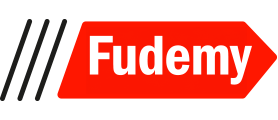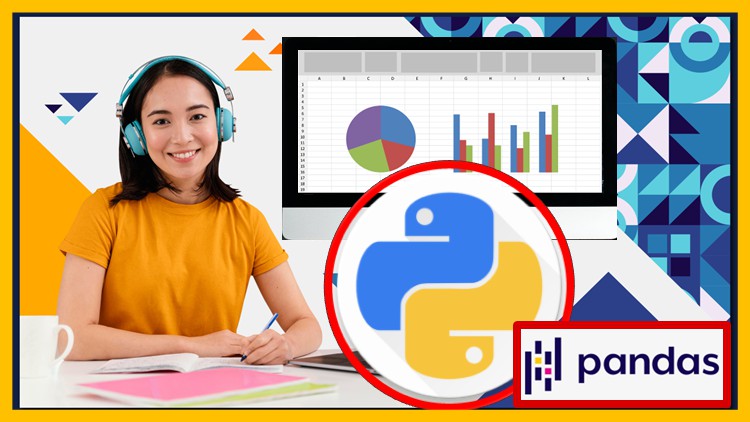What
You’ll Learn
You’ll Learn
- Build a Solid Foundation in Data Analysis with Python
- You will be able to work with the Pandas Data Structures: Series
- DataFrame and Index Objects
- Learn hundreds of methods and attributes across numerous pandas objects
- You will be able to analyze a large and messy data files
- You can prepare real world messy data files for AI and ML
- Manipulate data quickly and efficiently
- “You will learn almost all the Pandas basics necessary to become a Data Analyst”
Requirements
- Students must be willing to learn the Data Analysis with Python language
- If you know basics of Python that is well and good
- Basic Or intermediate experience with Microsoft Excel or another spreadsheet software
- but not necessary
- Basic knowledge of data types (strings
- integers
- floating points
- Booleans) etc
- but not necessary
- Basic Programming knowledge Or knowing any other programming languages will also helps
Description
Hi, dear learning aspirants welcome to “Python For Data Science A-Z: EDA With Real Exercises In 2024 ” from beginner to advanced level. We love programming. Python is one of the most popular programming languages in today’s technical world. Python offers both object-oriented and structural programming features. Hence, we are interested in data analysis with Pandas in this course.
This course is for those who are ready to take their data analysis skill to the next higher level with the Python data analysis toolkit, i.e. “Pandas”.
This tutorial is designed for beginners and intermediates but that doesn’t mean that we will not talk about the advanced stuff as well. Our approach of teaching in this tutorial is simple and straightforward, no complications are included to make bored Or lose concentration.
In this tutorial, I will be covering all the basic things you’ll need to know about the ‘Pandas’ to become a data analyst or data scientist.
We are adopting a hands-on approach to learn things easily and comfortably. You will enjoy learning as well as the exercises to practice along with the real-life projects (The projects included are the part of large size research-oriented industry projects).
I think it is a wonderful platform and I got a wonderful opportunity to share and gain my technical knowledge with the learning aspirants and data science enthusiasts.
What you will learn:
You will become a specialist in the following things while learning via this course
“Data Analysis With Pandas”.
-
You will be able to analyze a large file
-
Build a Solid Foundation in Data Analysis with Python
After completing the course you will have professional experience on;
-
Pandas Data Structures: Series, DataFrame and Index Objects
-
Essential Functionalities
-
Data Handling
-
Data Pre-processing
-
Data Wrangling
-
Data Grouping
-
Data Aggregation
-
Pivoting
-
Working With Hierarchical Indexing
-
Converting Data Types
-
Time Series Analysis
-
Advanced Pandas Features and much more with hands-on exercises and practice works.
Series at a Glance
-
Series Methods and Handling
-
Introducing DataFrames
-
DataFrames More In Depth
-
Working With Multiple DataFrames
-
Going MultiDimensional
-
GroupBy And Aggregates
-
Reshaping With Pivots
-
Working With Dates And Time
-
Regular Expressions And Text Manipulation
-
Visualizing Data
-
Data Formats And I/O
Pandas and python go hand-in-hand which is why this bootcamp also includes a Pandas Coding In full length to get you up and running writing pythonic code in no time.
This is the ultimate course on one of the most-valuable skills today. I hope you commit to mastering data analysis with Pandas.
See you inside!
Who this course is for:
- Beginner Python developers – Curious to learn about Data Science Or Data Analysis
- Data Analysis Beginners
- Aspiring data scientists who want to add Python to their tool arsenal
- Students and Other Professionals
- AI and ML aspirants to upgrade their knowledge in Data Preprocessing before applying the machine learning algorithms to their projects
- “Data Analyst job seekers who wants to update their Resume with Pythons data analysis toolkit”






